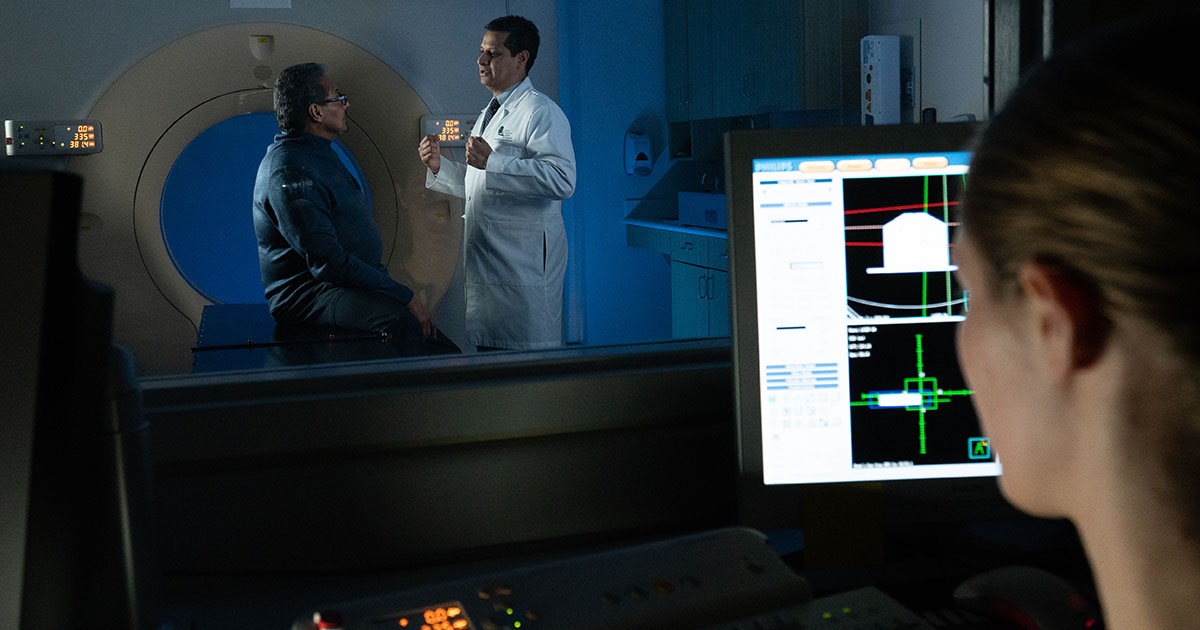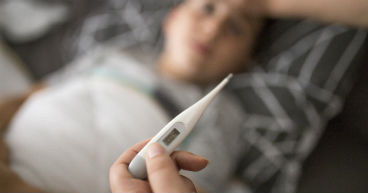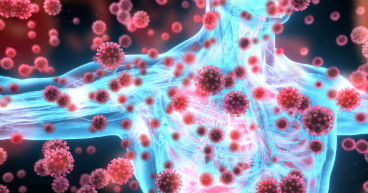
Let’s face it, many cancer treatments are physically difficult. Surgery, chemotherapy, radiation therapy and cancer drugs may take a toll on the body that result in serious side effects. These treatments and side effects may also compromise or exhaust the immune system at a time when your body may need it to perform efficiently. As critical as these cancer treatments are, it’s also important to understand how, in some cases, they may damage the immune system, so you can take steps to protect yourself, especially during the COVID-19 pandemic.
Different treatments, different impacts
Because cancer treatments attack the disease in different ways, they may also affect the immune system in different ways. For instance:
Chemotherapy drugs are designed to kill fast growing cells, which most cancer cells are. But chemotherapy may also attack fast-growing healthy cells, such as those found bone marrow, which produces immune cells, hampering their ability to protect you from illnesses, bacteria and other threats.
Surgery, especially major surgery, may put a burden on the immune system, exhausting its reserves to help prevent infection and heal wounds caused by the procedure. Surgery requires cutting through the skin and layers of tissue, which may expose the body to germs. Also, surgeons may need to remove lymph nodes, which help fight infection.
Radiation therapy works by exposing cancer cells to ionizing waves of energy that kill the cells or stunt their growth. While destroying or damaging cancer cells, the treatment may also damage healthy cells and contribute to conditions that may lead to an increased risk of infection.
Immunotherapy drugs called checkpoint inhibitors are designed to boost the immune system by helping them to better recognize and attack cancer cells. But, in some cases, an overactive immune system may attack healthy cells and cause flu-like symptoms or potentially serious autoimmune conditions, such as colitis.
CAR T-cell therapy uses re-engineered immune cells to attack specific cells to treat certain types leukemia or lymphoma. But this therapy may also damage or exhaust B-cells and affect the body’s ability to produce antibodies.
Stem cell transplants replace your immune cells with your own healthy cells (autologous transplant) or with those from a stem-cell donor (allogeneic transplant). This therapy often requires intense regimens of chemotherapy and radiation therapy to prepare the body for the new donor cells. Allogeneic transplants may result in a condition called graft versus host disease, in which the recipient rejects the donor cells, resulting in recurrent infections and other symptoms.
Cancer treatments and blood counts
While destroying or damaging cancer cells, treatments may also damage healthy blood cells and the bone marrow the body uses to produce new immune cells. And when treatments like chemotherapy and radiation therapy are used together, the combination may lead to conditions that lower blood counts and increase the risk of infection, including:
- Thrombocytopenia
- Leukopenia
- Neutropenia
- Pancytopenia
What is thrombocytopenia?
Platelets (thrombocytes) are blood cells that help slow or stop bleeding by forming clots. Thrombocytopenia occurs when there’s an abnormally low number of platelets. Thrombocytopenia may also be brought on by a virus, although there’s no evidence COVID-19 can lead to the condition. There is evidence, however, that thrombocytopenia may be associated with more severe COVID-19 symptoms and a higher mortality rate. “While the impact of thrombocytopenia is uncertain, patients with low platelet counts need to be carefully monitored, especially if they have a COVID-19 infection,” says Maurie Markman, MD, President of Medicine & Science at Cancer Treatment Centers of America® (CTCA).
What are leukopenia and neutropenia?
Some cancer treatments can cause a reduction in the number of white blood cells, called leukocytes, which are among the body’s chief defense for fighting infection. When the number of white blood cells falls below a certain level—a condition known as leukopenia—the risk for serious infection increases. Neutropenia is specific to the number of neutrophils—the most common type of leukocyte—in the blood. Chemotherapy is the most common cause of these conditions, but they may also be caused by radiation therapy, stem cell transplants, or a combination of therapies.
What is pancytopenia?
Pancytopenia occurs when the amount of all three major types of blood cells—red and white cells and platelets—falls below a certain level. The symptoms of all three conditions include excessive bleeding, bruising, fever and signs of infection. Because it affects red blood cells, pancytopenia may also mirror symptoms common in anemia, including fatigue and pallor.
Power in knowledge
It’s important to arm yourself with information about side effects, risks and other complications related to cancer treatments, how they may impact your immune system and for how long. If you have concerns about how cancer therapy may increase your risk for infection, especially during the pandemic, talk to your oncologists and take extra precautions to protect yourself, including:
- Washing your hands frequently with warm water and soap
- Using hand sanitizers and disinfectants approved by the U.S. Environmental Protection Agency
- Avoiding large crowds and self-isolating if you are at risk or think you have been exposed
- Practicing "social distancing," if you must go out, by keeping space between you and others
- Avoiding touching your mouth, eyes and nose
- Avoiding people who are sick—and staying home if you’re sick
- Disinfecting countertops, door handles, telephones and other frequently touched objects
- Brushing and flossing teeth
- Always wearing shoes
- Cleaning cuts and scrapes and covering them with a bandage
- Shaving with an electric shaver
- Avoiding animal waste
- Not changing diapers
- Avoiding unpasteurized dairy foods, undercooked meat and raw fruits, vegetables, grains, nuts and honey
- Staying out of hot tubs, ponds and rivers
If you’re a cancer survivor or in active treatment and are concerned about how COVID-19 may impact you or your care, please contact your care team.
Learn more about how cancer makes you more vulnerable to COVID-19.



